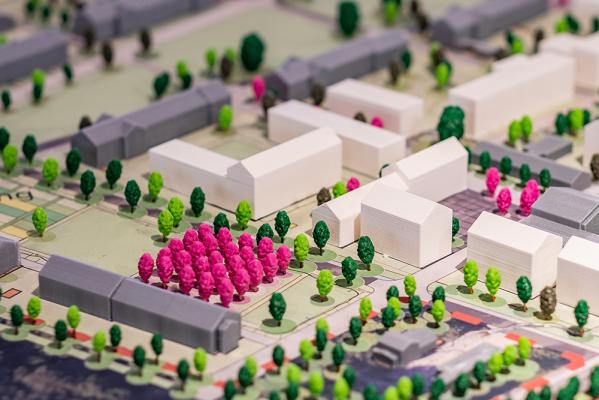Sege Park in Kirseberg is not just a upcoming district, but also a test bed for future sustainability solutions. The sharing economy will play a key role in this. The sharing economy means that people share goods and services – so that you own less but at the same time have access to more.
In Sege Park, homes, businesses and public services will be established in an attractive old park environment. Development planning has taken place in collaboration between the City of Malmö and 13 developers. In the near future almost a thousand homes will be completed in both existing and new buildings.
The idea is for residents and businesses to find new solutions together for sustainable living. We are going to need new innovations. Global challenges such as a growing population, urbanisation and inequality place new demands on future living. In Sege Park, a variety of stakeholders will be able to experiment with new mobility solutions, sharing services, climate-smart innovations and investments that promote inclusivity and security.
The exhibition presents challenges as well as solutions in these focus areas:
Circularity/circular economy – in order to reduce waste with earth´s resources
Closing the loops – to find efficient solutions for the supply of water, sewerage and energy
Placemaking – to create shared spaces where people can get together
Traffic solutions – to create an overall concept for sustainable travel
Social and financial factors – to make it possible for everybody to live sustainable
Partners, Sharing Cities Sweden, Sege Park Malmö
Trianon, E.ON, Form/Design Center, SLU, IIIEE (The national Institute for Industrial Environmental Economics, LU) och IVL Svenska miljöinstitutet.
The exhibitions is produced by
Form/Design Center, Malmö stad, Gullers Group
Om Sharing Cities
Sharing Cities Sweden is a programme funded by VINNOVA and part of Viable Cities, a strategic innovation programme for smart, sustainable cities. It aims to improve national and international cooperation and to enable cities to exchange their experiences of the sharing economy. This work has resulted in a number of world-leading test beds in Stockholm, Gothenburg, Malmö and Umeå, where the opportunities and risks of the sharing economy are tested and evaluated. These test beds are like living urban laboratories, where new ideas can be trialled in a practical sitiuation. The goal is that the test beds will help Sweden to achieve the sustainable development goals.
